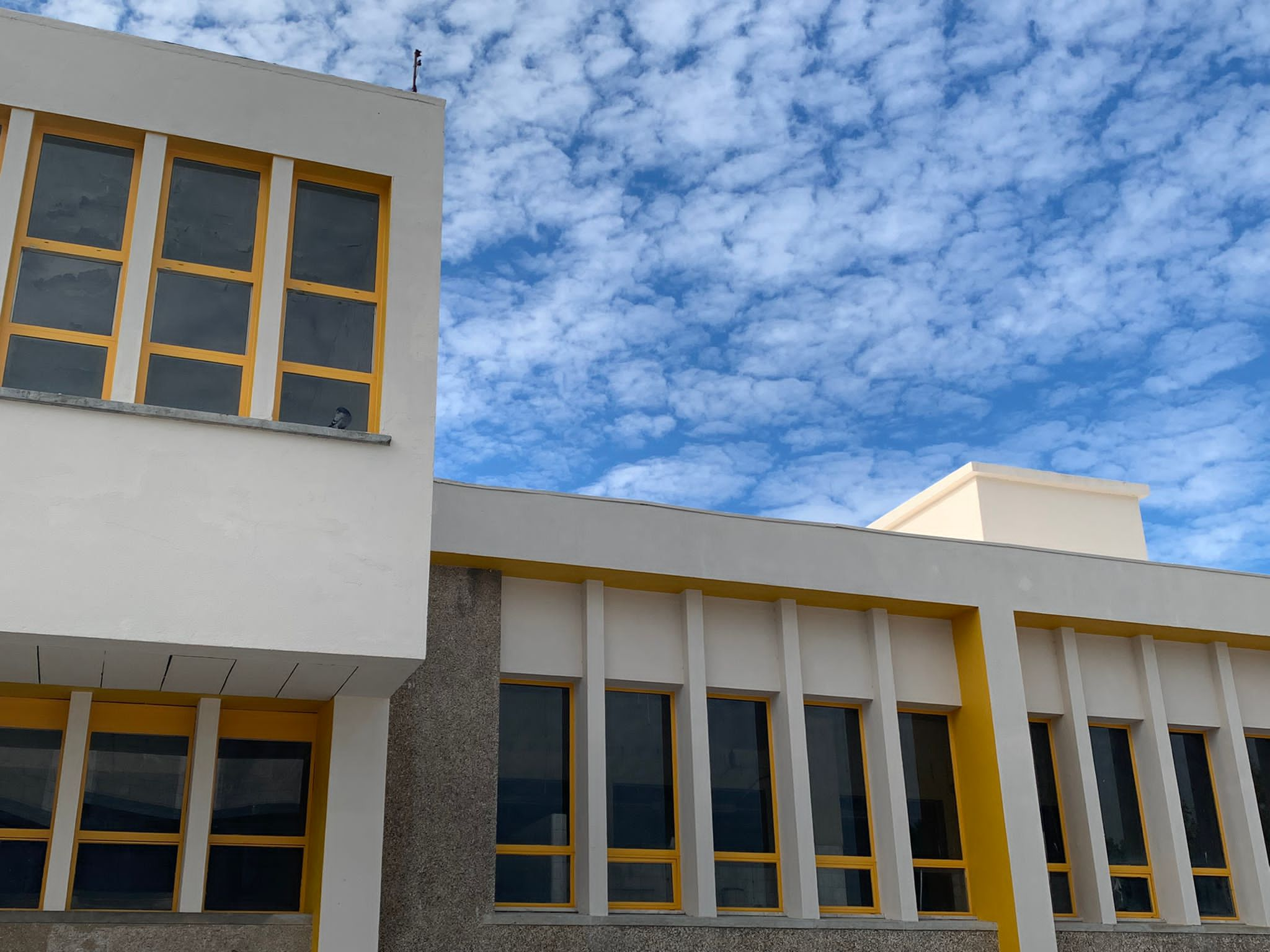- Science, healthcare, art and technology
The cycle of events where digital therapeutics, science, multimedia art and technology meet
Exhibition with immersive installations
16th, 17th & 18th May 2024
The Warehouse
Event is free, but please register here to attend.
Download the full programme here.
Tickets for the multimedia concerts available in this link.
Metamersion, a cycle of events where digital therapeutics, science, multimedia art and technology meet is back!
For the third edition - “Metamersion: Healing Algorithms”, the public is invited to an immersive exhibition, both physical and virtual, that will delve into the symbiotic relationship between art, science, and technology. This cycle is part of a broader initiative at the Champalimaud Foundation to establish the new Digital Therapeutics Centre, integrating perception and movement for fundamental research and healthcare.
During three days, “Healing Algorithms” will display prototype experiences and art works, based on fundamental research developed at the Champalimaud Centre for the Unknown, using generative AI, computational neuroscience and other innovative technologies. You will also be able to participate in dance performances, roundtables and multimedia concerts.
This edition of Metamersion will offer engaging simulations, unraveling different layers of human cognition, virtually embodying digital agents to deepen the understanding of the human mind and body. Join us in this multidimensional exploration, hopefully shaping the future of healthcare experiences.
Programme at a glance for 16th, 17th & 18th May:
-
Immersive installations, VR experiences, digital therapeutics and artistic pieces: 7pm-12am
-
Round tables: 7pm
-
Multimedia dance performances: 8:30pm and 9:30pm
-
Multimedia concerts: 10:30pm
Food & Drinks
Food menu created by chefs João Augusto and Filipe Camacho, in collaboration with AI.
Drinks by Flamingo Boémio, including a special drink created in collaboration with AI.
About Metamersion
An event series to explore the synergies between science, art and technology in service to human health and knowledge
Metamersion
Metamersion is a series of public events that seamlessly blend scientific research, cutting-edge technology developments and multimedia art with the overall mission of bettering human health, via digital therapeutics. Anchored in artificial intelligence and other innovative digital technologies, these events redefine the intersection between health, science and art.
The Metamersion event is hosted at The Warehouse, in Lisbon (next to the Champalimaud Centre for the Unknown) and is free and open to the public. Visitors will be able to have physical and digital immersive experiences at the interface of science, art, and technology. We invite everyone to reflect on how these experiences may shape our present and future behaviors, as well as improve our health and wellbeing.
The origin of the name Metamersion
The word Metamersion combines two concepts: metamers - stimuli that look the same but have different physical features, and immersion - a state of deep and uninterrupted mental involvement. Color metamers revealed our trichromatic vision long before we understood its scientific basis. Immersive technologies like virtual and augmented reality, motion capture, and videogaming have beneficial psychological and physical effects, the basis of which are still under active investigation.
About the Champalimaud Warehouse
The new Digital Therapeutics Centre
The Warehouse
The Champalimaud Foundation is determined to establish a centre for digital therapeutics. Digital Therapeutics refers to software as a medicine; a non-pharmacological approach to modifying the course of diseases. The centre will integrate fundamental neuroscience research, human behavioral research and new technologies to advance human health.
Digital Therapeutics prototype
From Trauma to Healing
'From Trauma to Healing' is a collection of music and animated short films designed to guide the audience on a journey through different mental states. In close collaboration with The School of Life and writer Alain de Botton, Universal Everything crafted minimalist representations of these mental states to complement ten musical compositions scored by Sound Designer Simon Pyke. Each film represents important stages individuals may experience while navigating psychological distress through to eventual understanding, recovery, and healing and feature choreographed arrangements of minimal graphic dots, creating dynamic and thoughtful performances and are designed for use both digitally and in therapeutic real world spaces.
Commissioned by The School of Life
Universal Everything (UK): collective of media artists, experience designers and future makers.
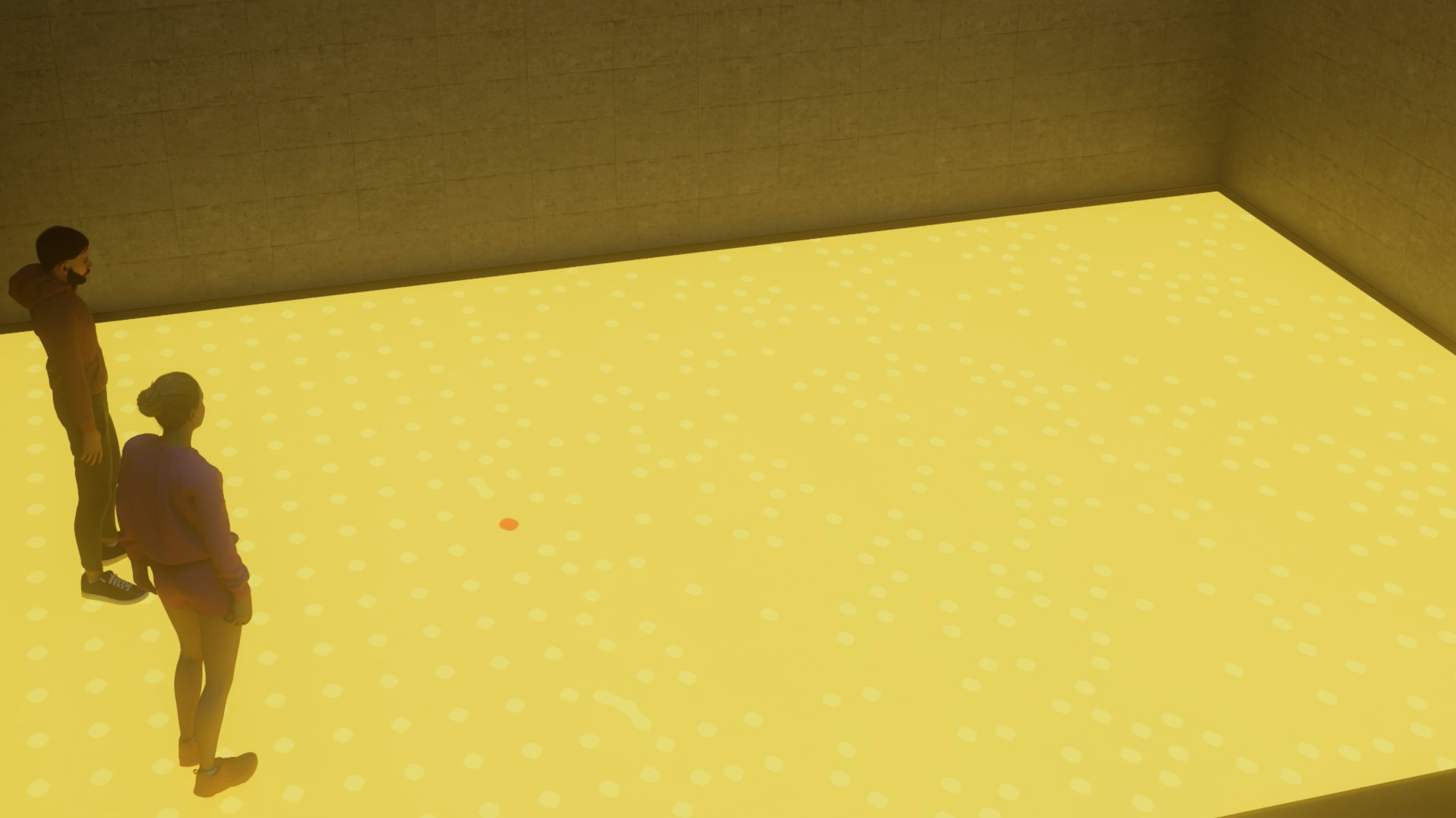
Art pieces in exhibition
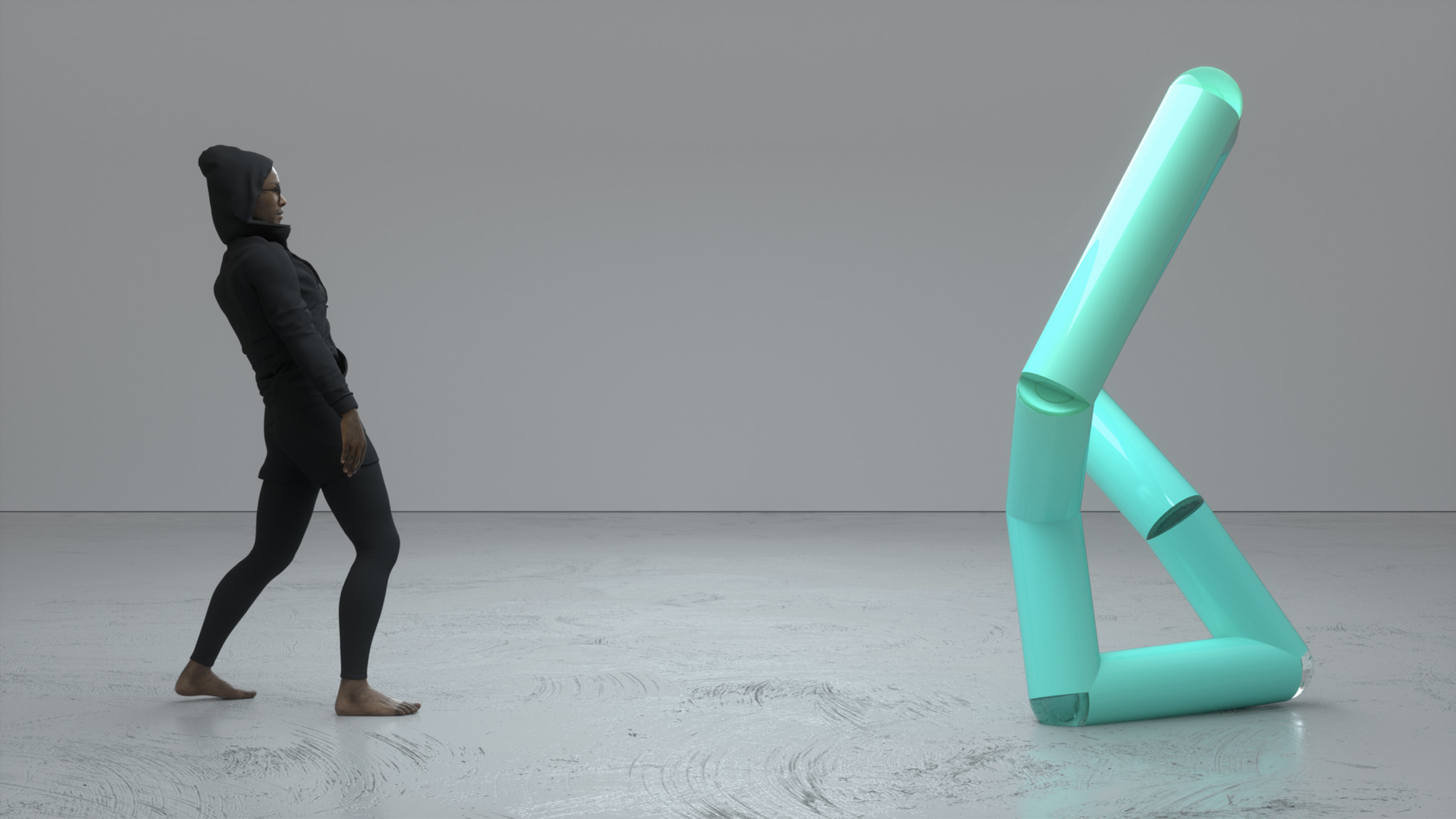
Machine learning
Can humans teach machines to move?
'Machine Learning' is the second set of films, part of the 'Hype Cycle' series. It builds on past experiments with motion studies, and asks: when will machines achieve human agility? Set in a spacious, well-worn dance studio, a dancer teaches a series of robots how to move. As the robots’ abilities develop from shaky mimicry to composed mastery, a physical dialogue emerges between man and machine – mimicking, balancing, challenging, competing, outmanoeuvring.
Can the robot keep up with the dancer? At what point does the robot outperform the dancer? Would a robot ever perform just for pleasure? Does giving a machine a name give it a soul? These human-machine interactions are inspired by the Hype Cycle trend graphs produced by Gartner Research, a valiant attempt to predict future expectations and disillusionments as new technologies come to market.
Universal Everything (UK): collective of media artists, experience designers and future makers.
My Word
Who defines who we are? What happens when images betray our words? How do we survive in a world that constantly misunderstands us? 'My Word' is an audiovisual creation project based on artificial intelligence where a woman shows us her journey to define herself.
'My Word' is a project based on text-to-image latent diffusion model (LDM) technology that uses implicit bias in technology to be part of the debate on the unconscious biases generated by the patriarchal and colonial system . It starts from a creative investigation of the current tools developed to relate the creation of imagination with the new stakes of Artificial Intelligence.
Carme Puche Morè (ES): filmmaker and activist.
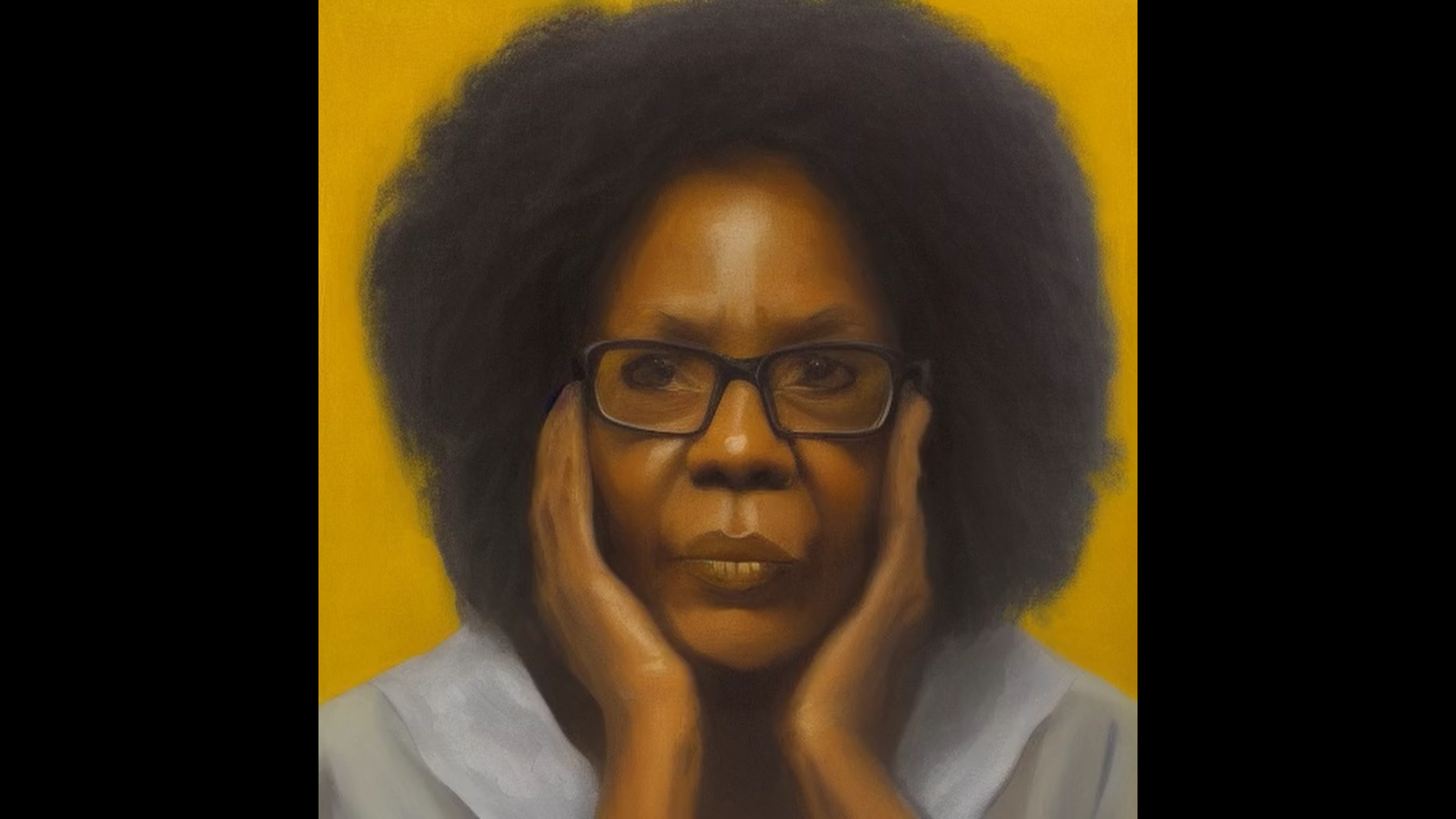
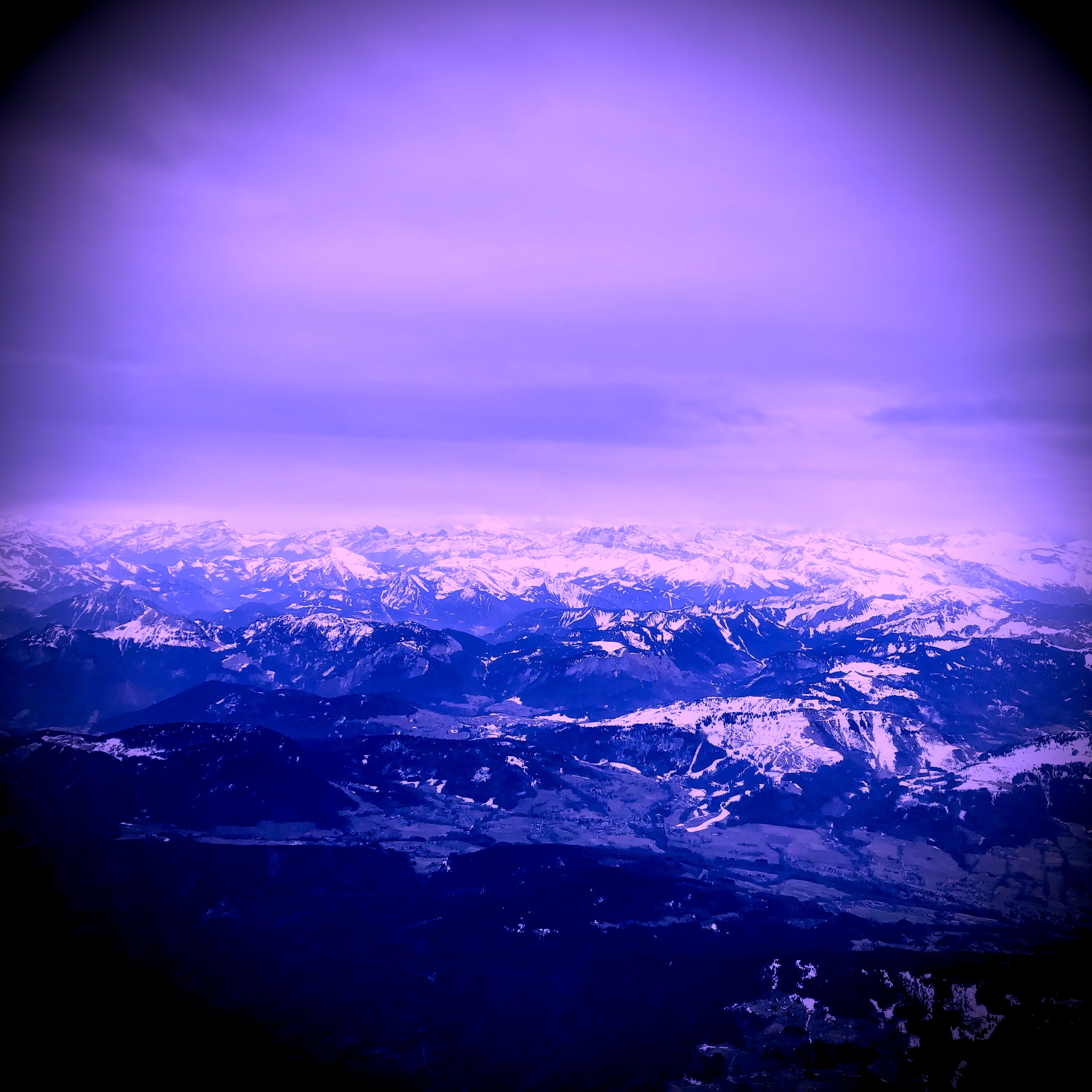
All around you
Can we translate some of the principles underlying VR, AI and immersion research to choreography, without using any technological apparatus? How is technology influencing the way choreographers perceive and create movement?
With these questions in mind, ‘All around you’ is a performance that guides one audience member at a time, through a path in the exhibition space. It relies only on the body, the voice and simple actions, to create a kind of immersive experience.
This performance calls for the active participation of the audience and to a certain extent it depends on it to exist. It could be seen as a close dialogue between performers and audience, but where those roles sometimes get mixed up because both create and are influenced by what the other creates, making each performance personal and unique.
Sofia Dias & Vítor Roriz (PT): duo of artists/choreographers collaborating since 2006. Currently artists in residency at Champalimaud Foundation, under Bridges to the unknown initiative.
Round tables
Performance and body movement - 16th May: What are the implications of performance measurement and enhancement in different fields? We will discuss the concept of performance across various domains of research and practice, ranging from science to sports and arts.
Moderador: Joe Paton (Director of the neuroscience research program at Champalimaud Foundation)
Speakers: João Brito (Director of performance and research at Federação Portuguesa de Futebol), Sofia Dias & Vítor Roriz (Dancers and choreographers), Josefa Domingos (Physiotherapist of Parkinson’s disease and movement disorders) and Marta Moita (Principal investigator Champalimaud Foundation).
Immersion - 17th May: How can we create immersive environments using technology, psychedelics or artistic pieces? We will explore the intersections between human behavior, digital therapeutics, and arts in immersive contexts.
Moderador: John Krakauer (Professor at Johns Hopkins University and researcher at Champalimaud Foundation)
Speakers: Claire Cook (Universal Everything), Zach Mainen (Principal investigator Champalimaud Foundation), Opiyo Okach (Dancer and choreographer)
Ethics on AI - 18th May: What are the ethical challenges of using AI? Can we develop AI models respecting privacy, equality and inclusion? We will delve into these questions and explore prominent ethical concerns and challenges, including data protection, privacy, intellectual property, and topics associated with the application of AI in research, biomedicine, and the arts.
Moderador: Helena Moniz (Chair of the Ethics Committee for the Center for Responsible AI)
Speakers: Iakovina Kindylidi (Lawyer at Vieira de Almeida), André Valente (Member of the Ethics Committee at Champalimaud Foundation), Daniel McNamee (Principal investigator at Champalimaud Foundation) and Carmen Puche Moré (Artist and filmmaker).
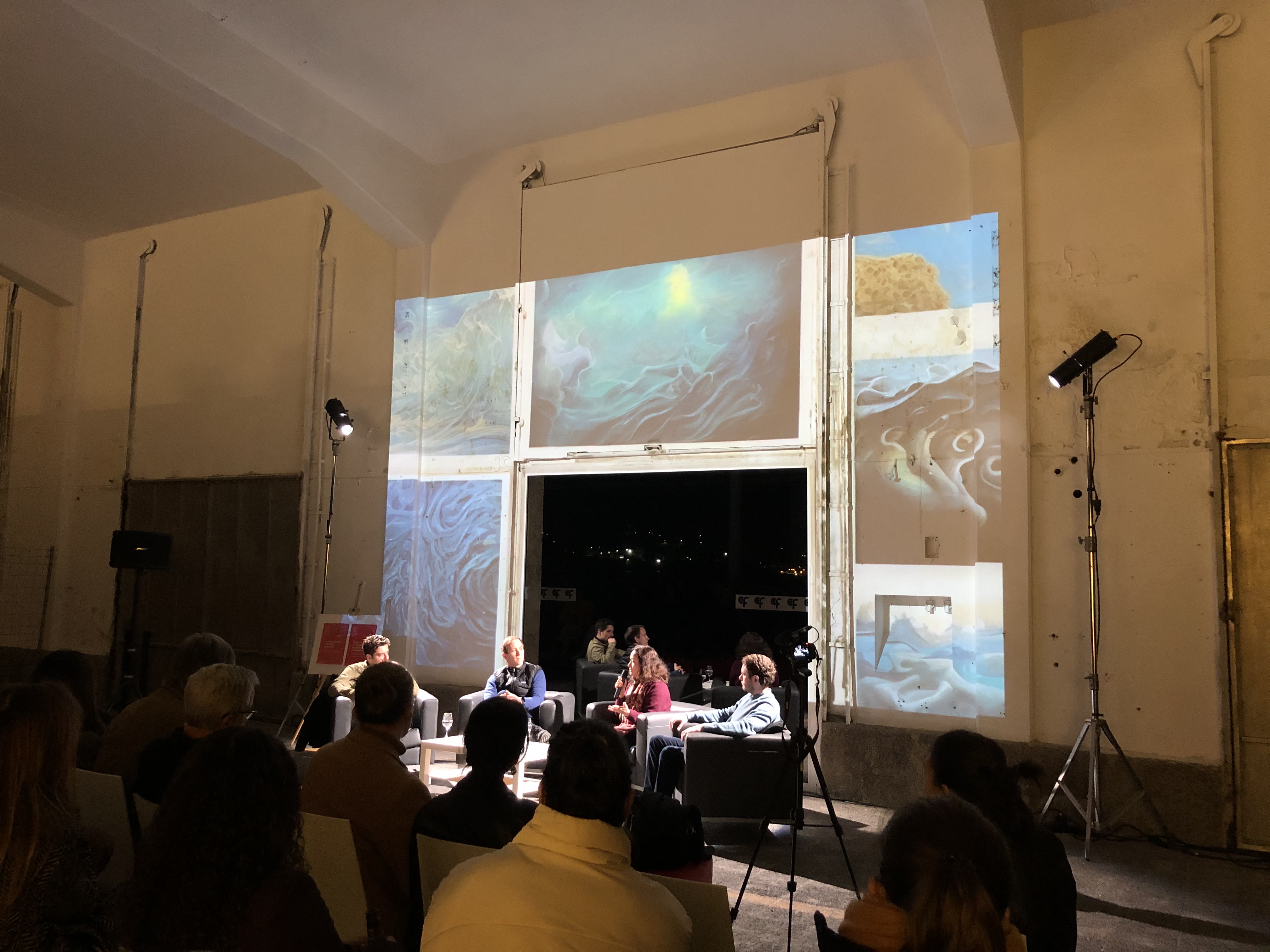
Immersive installations in exhibition
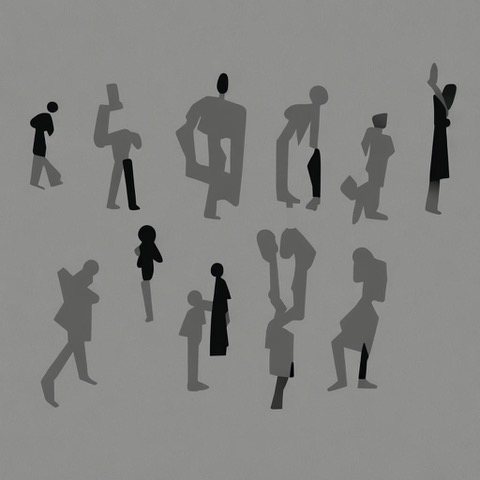
ConsonâncIA
What does the future of human health look like in a world where humans aren't the only ones talking and deciding?
The immersive installation ConsonâncIA presents an experience disrupting the space from which we draw answers to that question and will place the visitors at the intersection of machine intelligence and human expression. Questions like: "Will our hurt and what it means for it to be absent be better understood?"; "Did the machine understand our collective hurt?"; "Did the machine help us understand each other’s hurt?" will be the starting point.
ConsonâncIA will offer a visually stunning and interactive amalgam of identities making up visitors at Metamersion. As participants share more about themselves with the machine, in a personal and private way, a visual representation making up what it understands of them will inevitably change. These changes will express ways the machine believes represents the participant’s experiences of hurt and how it relates to others around. Should this machine intelligence have the curiosity to understand one person in particular, it will launch an invitation to enter inside, where another immersive experience will await.
Team
- Eric Lacosse (US): research scientist at the Champalimaud Foundation; co-leader of the project;
- Filipe Mendes (PT): developer of research devices at the Champalimaud Foundation and a creative building installations, interactive art pieces, and exhibitions; co-leader of the project;
- Leonardo Leitão (PT): autodidact software engineer working at the Champalimaud Foundation;
- Cláudia Ribeiro (PT): lecturer and degree coordinator at IADE - Creative University, specializing in the convergence of Art & Science and research in generative art, VR, and projection mapping;
- Rui Rodrigues (PT): musician linked to new traditional music and electronic music, lecturer at IPCB and a student in Creative Computing and Artificial Intelligence at IADE;
- Nico Espinoza (CL): sound artist interested in socio-political tensions between universal abstraction and local experience present in the contemporary discourses on cognition, ecology and technology;
- Lydia Neto (DE/PT): neuroscience research technician interested in combining creative flair with scientific pursuits, showcasing the thrilling possibilities at the intersection of art and cognitive neuroscience.
Submersion
Can AI teleport us into a world of its own creation?
Submersion invites participants to witness their own transformation into surreal beings beyond imagination. This installation features a large projection screen that captures the image of the participants through a camera. An AI algorithm merges the images with a fantastic world it creates, giving the illusion of teleportation, while at the same time mirroring real movements, making visitors part of this dreamlike reality. As people move, they embody avatars and figures born from the AI's imagination, exploring these new dimensions as if they were their own.
This work is based on distilled diffusion algorithms and controlnets to yield AI-generated imagery shaped by camera inputs. The installation is enabled by drastic speedups in image generation, which is about 1000x faster than just one year ago.
Team
- Immersive AI systems group (DE/PT): working group of the Digital Therapeutics Centre, at Champalimaud Foundation, which develops immersive AI systems for digital therapeutics;
- Lunar Ring (DE): art-science collective that explores new forms of creativity between humans and AI.
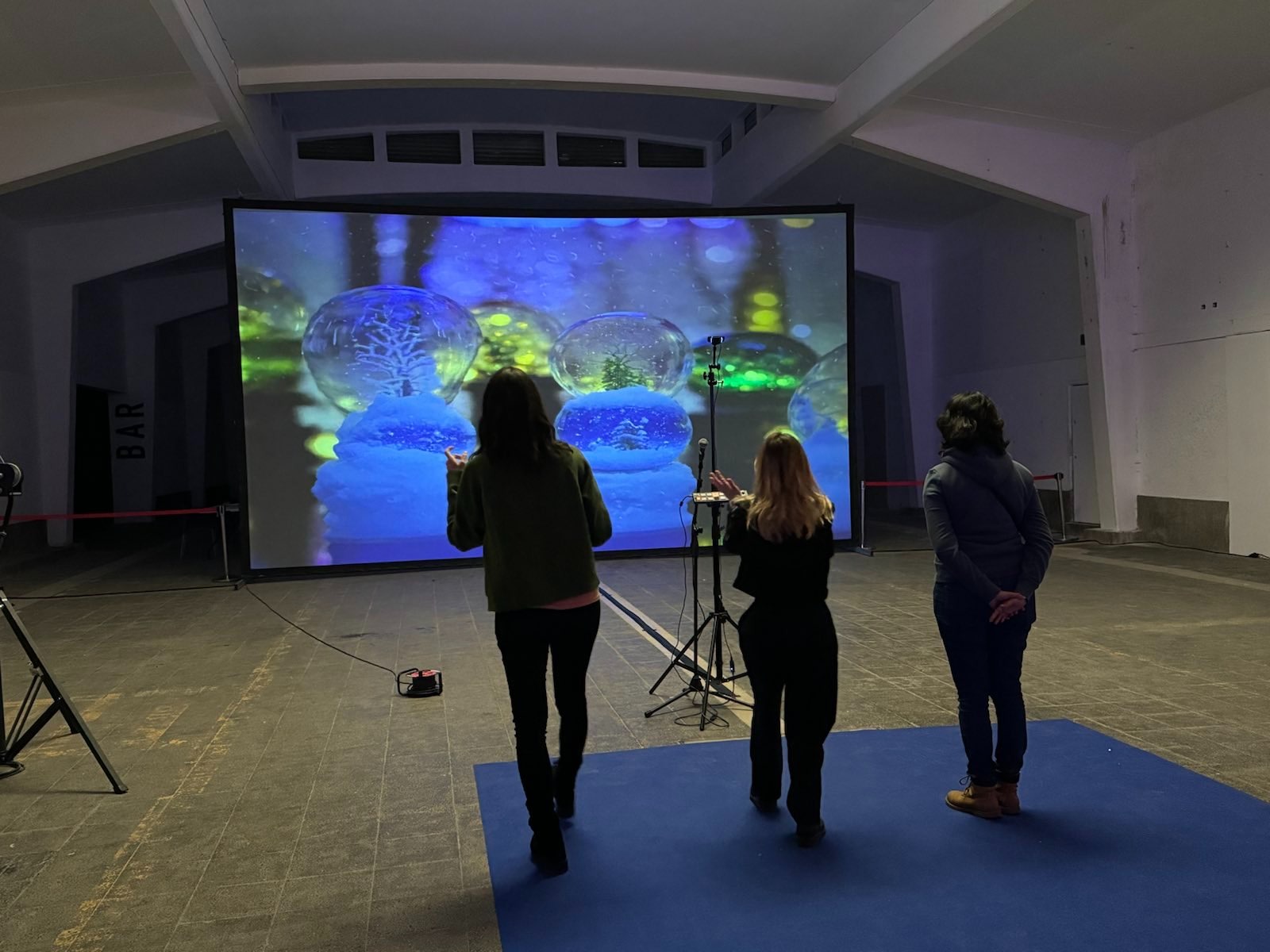
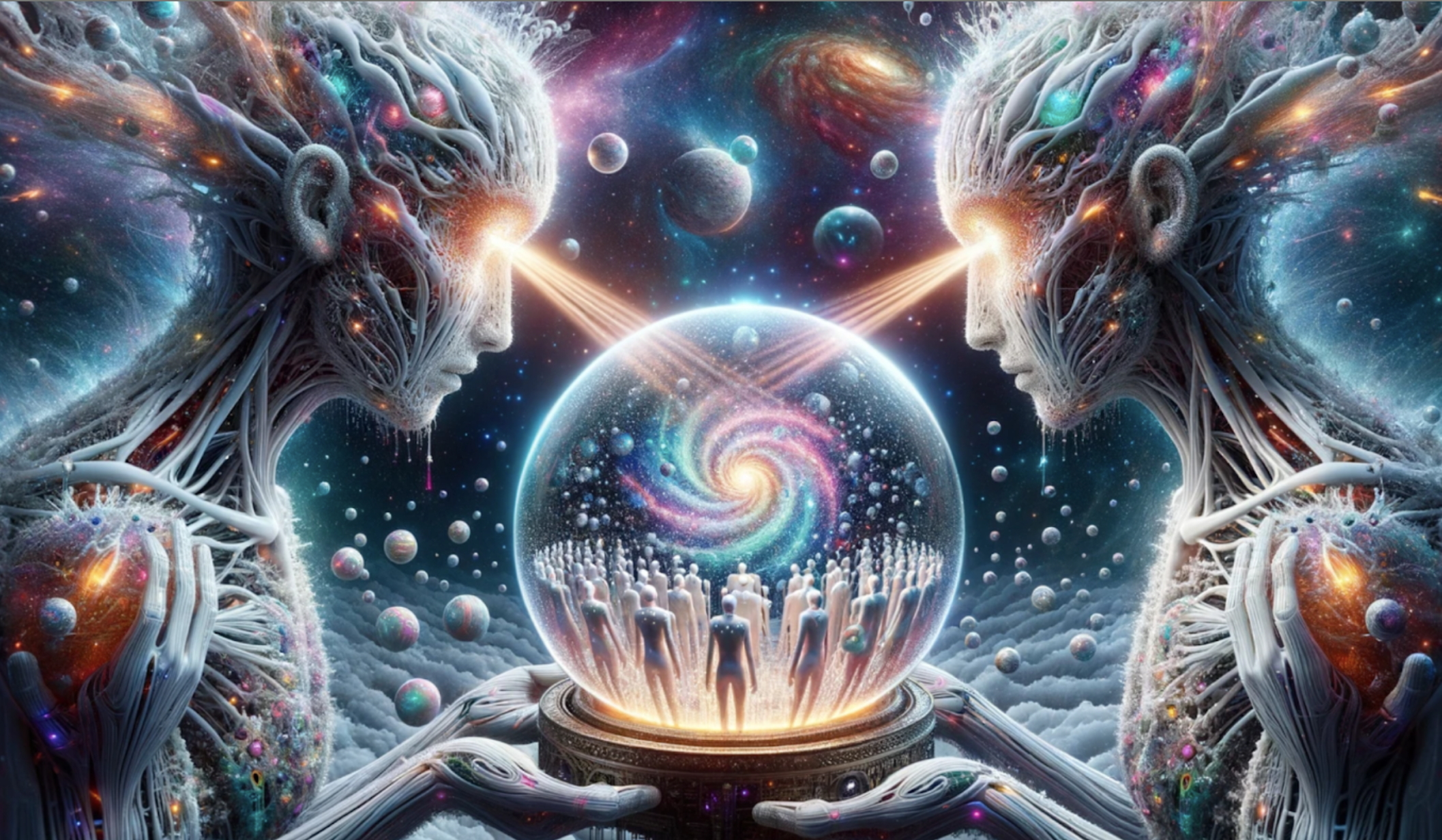
Oceans of Mind
Step into a realm where boundaries between reality and virtuality blur. The work features an interactive simulation of human dialogue, in which internal psychological states such as intention or emotion drive the conversation. The simulation is designed to expose the intricacies of human cognition as reflected in dialogue, shedding light on often elusive mental and emotional underpinnings, which drive our behavior.
The goal of the simulation is to construct a closed-loop interaction, through which the visitors can engage with, co-experience, co-emote, and virtually embody artificial agents. In doing so, a safe and versatile digital environment is created, which allows the user(s) to approach difficult psychological states such as trauma, social anxiety, and phobias by reliving those experiences through the agents.
Team
- Immersive AI systems group (DE/PT): working group of the Digital Therapeutics Centre, at Champalimaud Foundation, which develops immersive AI systems for digital therapeutics;
- Lunar Ring (DE): art-science collective that explores new forms of creativity between humans and AI.
Altered Reflections
When a mirror reveals more than your reflection, how does it reshape your self-perception? Discover a world where the familiar becomes intriguingly unfamiliar.
This installation presents a unique interactive experience, where visitors encounter a seemingly normal mirror. As they observe themselves, changes occur in their reflection. These gradual alterations challenge the viewer's perception of self, creating a thought-provoking interaction between reality and digital manipulation. It's an exploration of identity and the fluid nature of our self-image, inviting reflection on how we see ourselves and how easily this view can be shifted.
This installation harnesses distilled diffusion algorithms and controlnets to yield AI-generated imagery shaped by camera inputs.
Team
- Immersive AI systems group (DE/PT): working group of the Digital Therapeutics Centre, at Champalimaud Foundation, which develops immersive AI systems for digital therapeutics;
- Lunar Ring (DE): art-science collective that explores new forms of creativity between humans and AI;
- Joe Paton (US): neuroscientist and director of the Champalimaud Neuroscience Research, focuses on understanding the neural mechanisms of learning, decision making, action selection and timing.
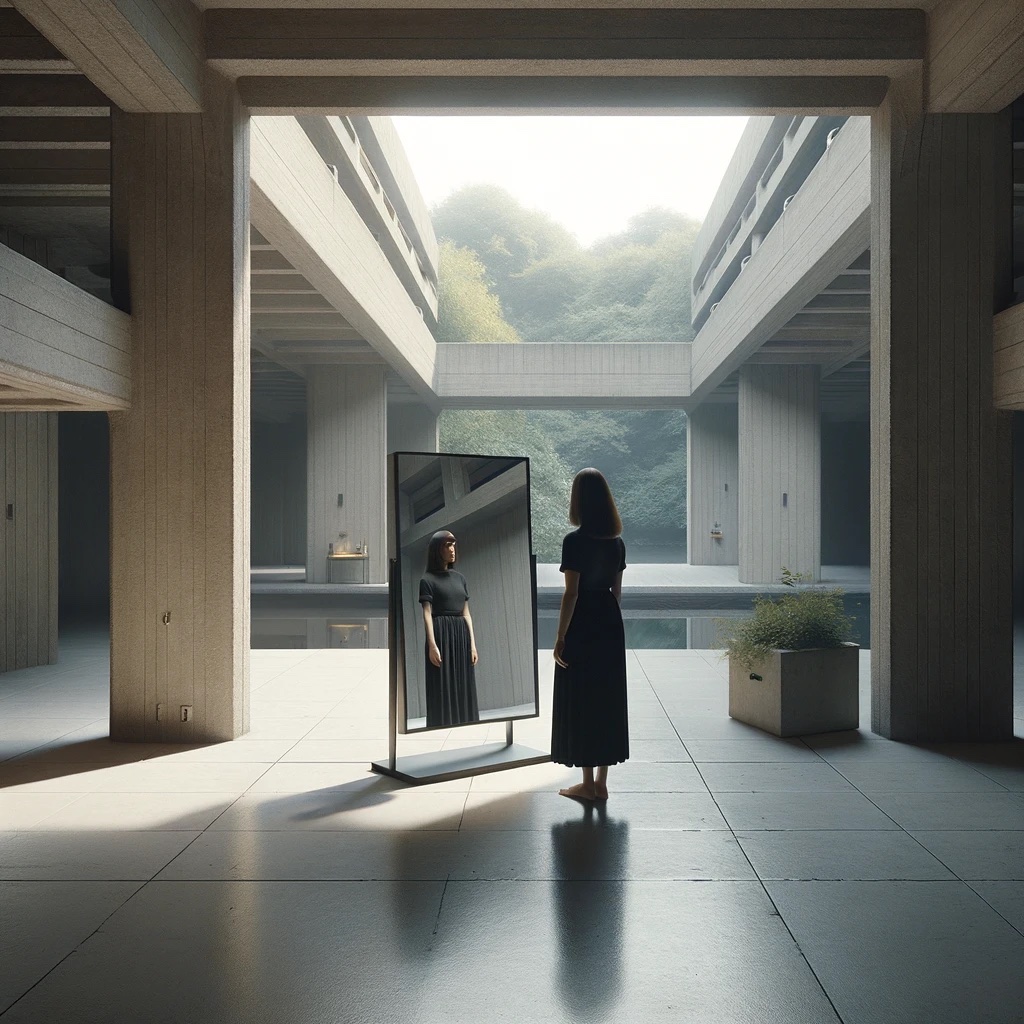
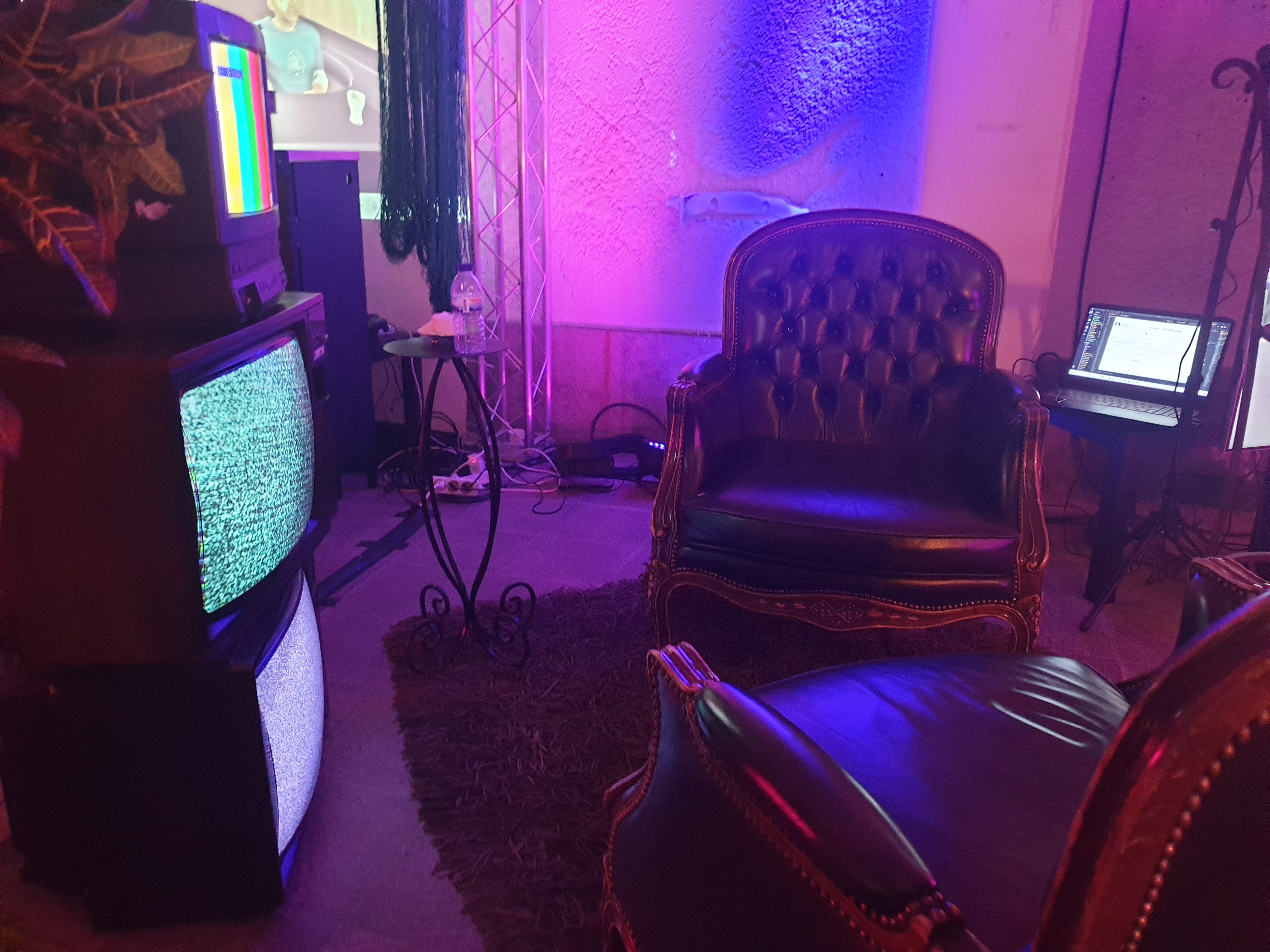
Chatsubo
Picture a world teeming with AI agents: lively companions, yet with lives of their own. In the bar of the future, immerse yourself in conversations with AI Saramago, AI Madonna and AI You, where real and artificial blur in inebriation. In this real-life cyberpunk bar, customers engage with agents in captivating dialogues. Avatars mirroring visitors also venture into the bar to mingle, weaving an extra layer of virtuality, in an ambience of retro-futuristic fun, strangeness and wonder. The project uses a range of AI tools to create live, interactive agents, with unique profiles and a creative flair, showcasing how some of the wildest fiction have become a reality.
Team
- Carlos Stein (BR/PT): computational neuroscientist investigating the intersection between artificial and biological intelligence;
- Mariana Duarte (PT): medical doctor working on her neuroscience MSc who is interested in researching human-AI interaction to promote health and self-exploration;
- Alex Farac (US/PT): neuro-artist creating media installations exploring science, society, and technology.
Manifold Time
Could collective immersive experiences shape the development of mathematical representations of complex data from the brain?
Manifold time is an interactive installation about collective sensemaking relations between humans and nonhumans. The work explores sonification and visualization techniques informed by real-time algorithms, developed at the Champalimaud Foundation. Human presence and body movements are transformed into a spatial audiovisual experience, setting a self-organizing system that questions the creative possibility of our relation with space, the brain, and technology.
Team
- Il Memming Park (US/KR/PT): neurotechnologist who uses machine learning to discover how the brain works from the bottom up;
- Nico Espinoza (CL): sound artist interested in socio-political tensions between universal abstraction and local experience present in the contemporary discourses on cognition, ecology and technology;
- Hyungju Jeon (KR): PhD student of the Neural Dynamics Lab at Champalimaud Foundation.
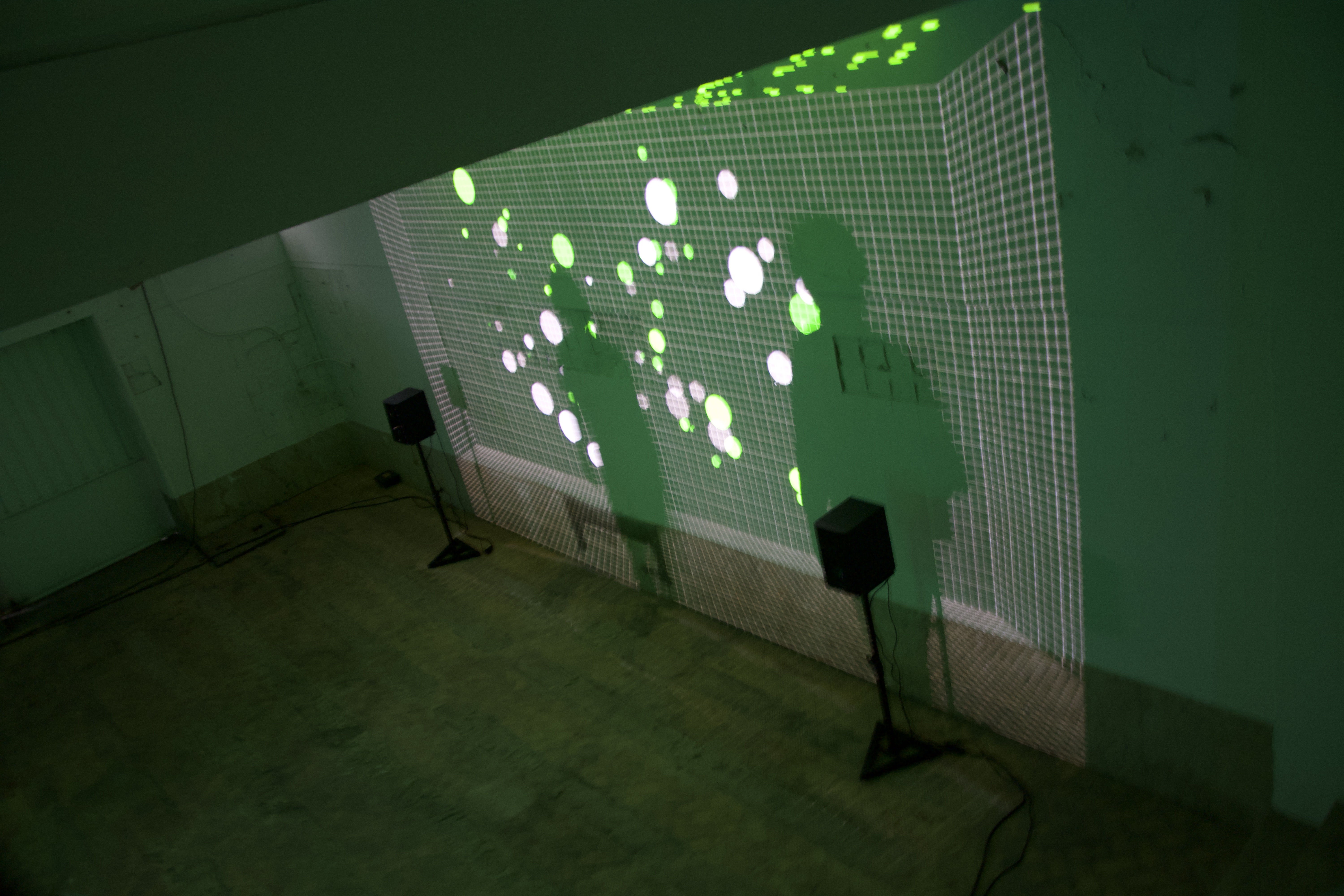
Virtual Reality experiences in exhibition
Virtual deformations
Are you ready to step into a virtual world, where ingenuity challenges the boundaries of human reasoning?
In this immersive VR environment, you will interact with fluid and clay to solve puzzles of varying difficulty levels. Sculpt 3D shapes from virtual clay while strategically guiding fluid into designated wells on the ground.
This experiment delves deep into human cognition and problem-solving, exploring the complex relationship between hand and eye movements and the underlying intentions driving each action.
Team
- Daniel McNamee (IRL): computational neuroscientist who is interested in the neural basis of cognition.
- Sara Monteiro (PT): Master's student interested in how to integrate memory and intentions with technology to improve everyday tasks.
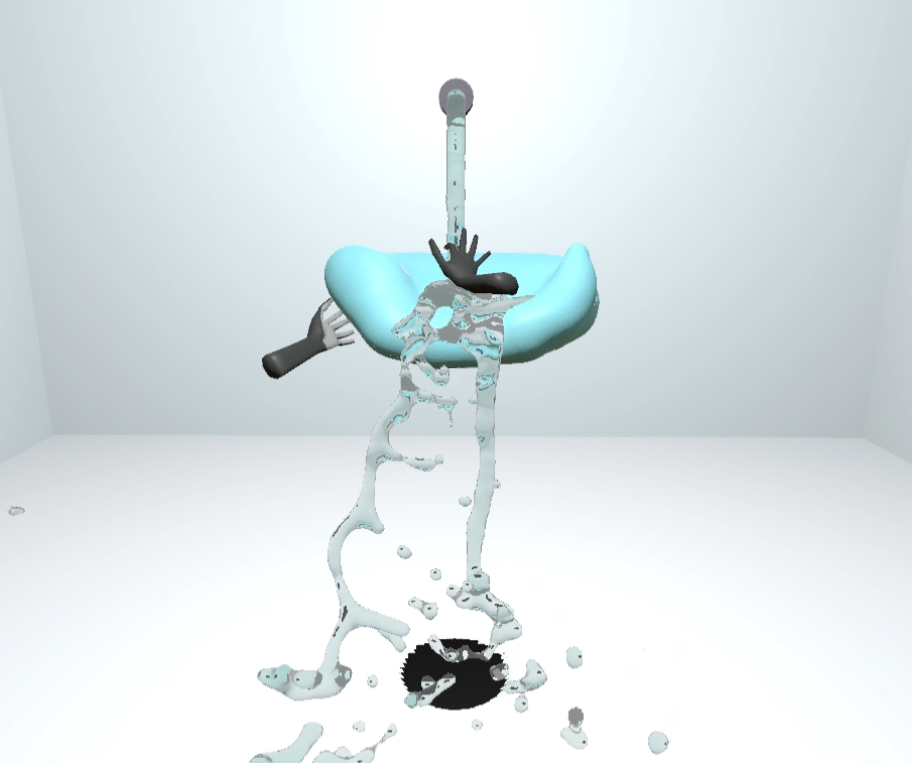
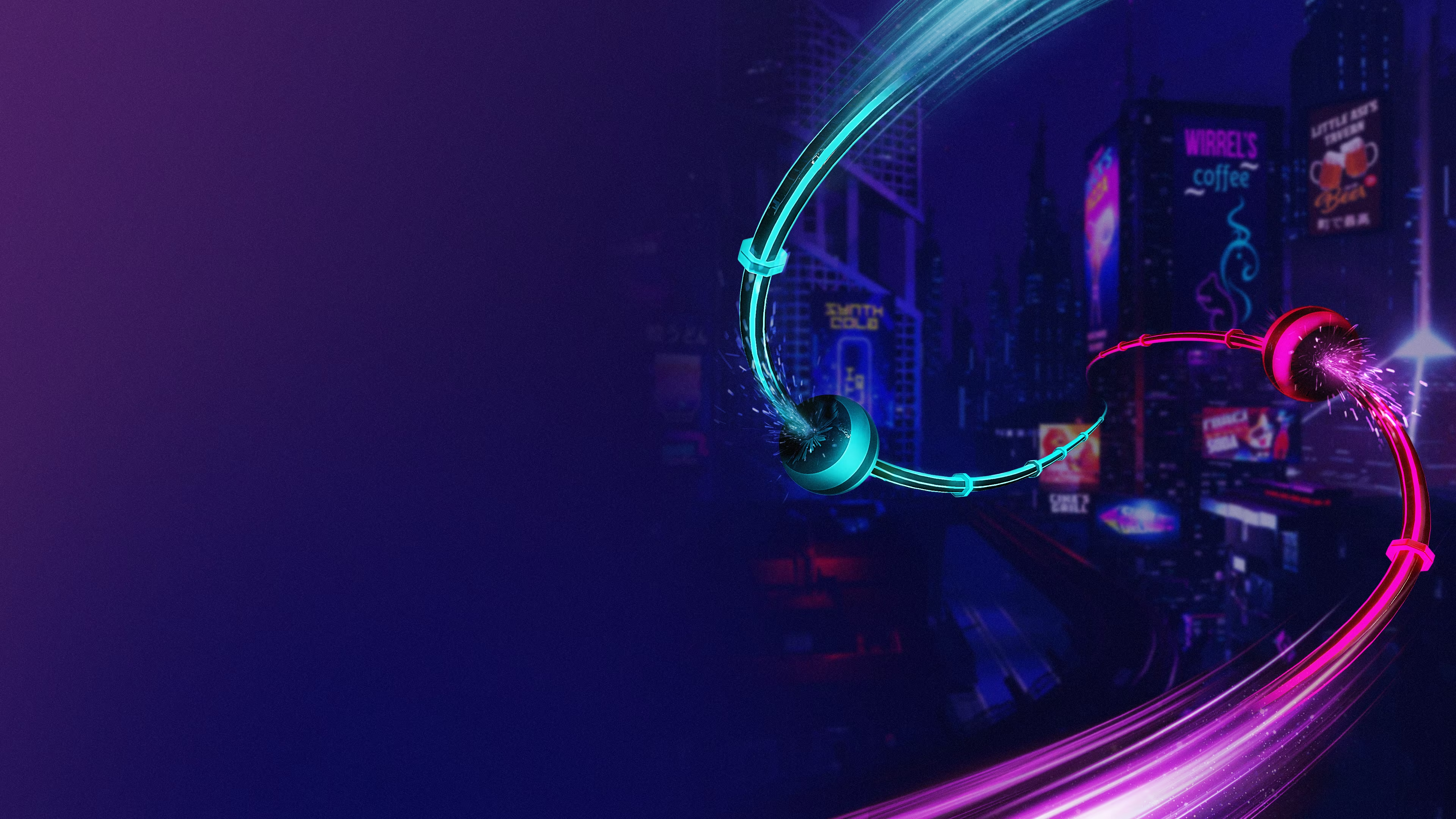
Synth Riders - Digital Dance Therapy
In collaboration between Kluge Interactive and the Champalimaud Foundation, ‘Synth Riders - Digital Dance Therapy’ demonstrates how immersive virtual reality and artificial intelligence can blend together dance, exercise and cognitive science. Through the convergence of these methods of self-understanding, this experiment shows a glimpse of how emerging technology can provide precise behavioural and health insights, while we play and explore.
Team
- Scott Rennie (IE/PT): neuroscientist working on creating immersive experiences focused on the exploration of human behaviour and phenomenology;
- Prannay Reddy (IN/PT): neuroscience PhD student, who enjoys doing scientific outreach videos;
- Lydia Neto (DE/PT): neuroscience research technician interested in combining creative flair with scientific pursuits, showcasing the thrilling possibilities at the intersection of art and cognitive neuroscience.
Multimedia dance performances
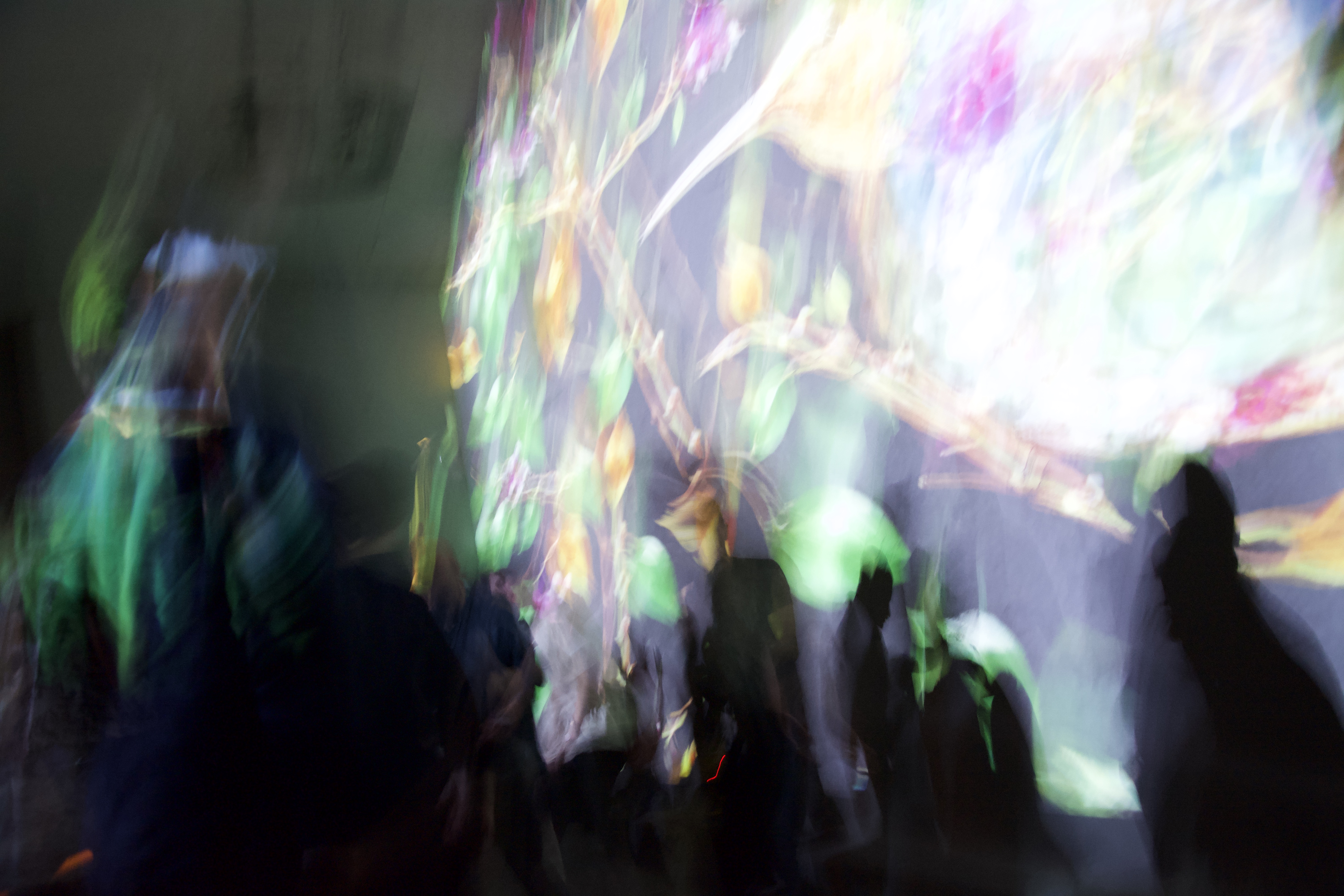
Psychoactive Surface
We often hear how AI should serve humanity as a tool, and presently it is widely used to manipulate us. But can the relationship be of a different kind, a creative and playful one, where one inspires the other without striving for control? Can AI be an instrument rather than a tool, a dance partner rather than a manipulator, a wild horse rather than a slave?
In this interactive installation, human motions and music are coupled to generative visual AI algorithms. Multiple human and AI systems engage in this feedback loop, co-creating fantastic audio-visual dreamscapes. At the boundary between control and letting go, each side may learn to interpret and inspire the other, giving room for unforeseeable emergent phenomena.
Various performances – acoustic and dance – will take place, some artists having practiced intensely with the machine, others improvising spontaneously.
Team
- Immersive AI systems group (DE/PT): working group of the Digital Therapeutics Centre, at Champalimaud Foundation, which develops immersive AI systems for digital therapeutics;
- Lunar Ring (DE): art-science collective that explores new forms of creativity between humans and AI;
- Nico Espinoza (CL): sound artist interested in socio-political tensions between universal abstraction and local experience present in the contemporary discourses on cognition, ecology and technology;
- Opiyo Okach (KE): dancer, choreographer and artistic director of GaaraProject, divides his time & develops work between France and Kenya.
Overparameterized Time
Can our senses help us understand mathematical representations of complex brain data? Which kinds of experiences would be better suited to stimulate our senses in this endeavor?
Overparameterized Time is an immersive audiovisual piece about the meaning-making possibilities of the hidden manifolds underlying scientific data resulting from neuronal signals previously collected in the laboratory. Departing from analog and digital data that shaped the history of systems neuroscience, a narrative blends with sounds and visuals informed by real-time algorithms, developed at the Champalimaud Foundation. This piece includes a dance performance, allowing participants to navigate through different dimensions of representation from seemingly random neuronal data.
Team
- Il Memming Park (US/KR/PT): neurotechnologist who uses machine learning to discover how the brain works from the bottom up; principal investigator of the Neural Dynamics Lab at Champalimaud Foundation;
- Nico Espinoza (CL): sound artist interested in socio-political tensions between universal abstraction and local experience present in the contemporary discourses on cognition, ecology and technology. Currently artist in residency at Champalimaud Foundation, under Bridges to the unknown initiative;
- Hyungju Jeon (KR): PhD student of the Neural Dynamics Lab at Champalimaud Foundation.
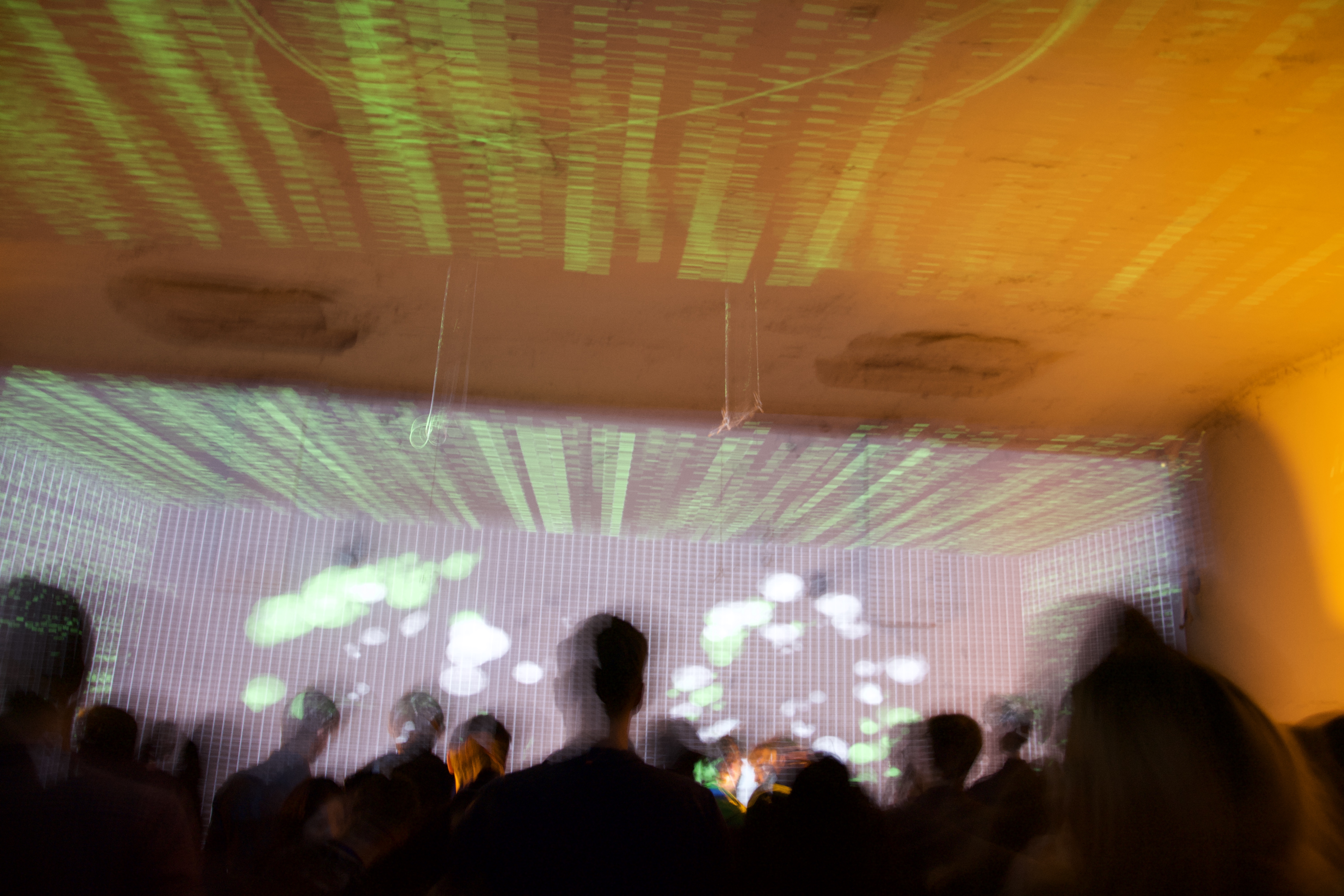
Multimedia concerts
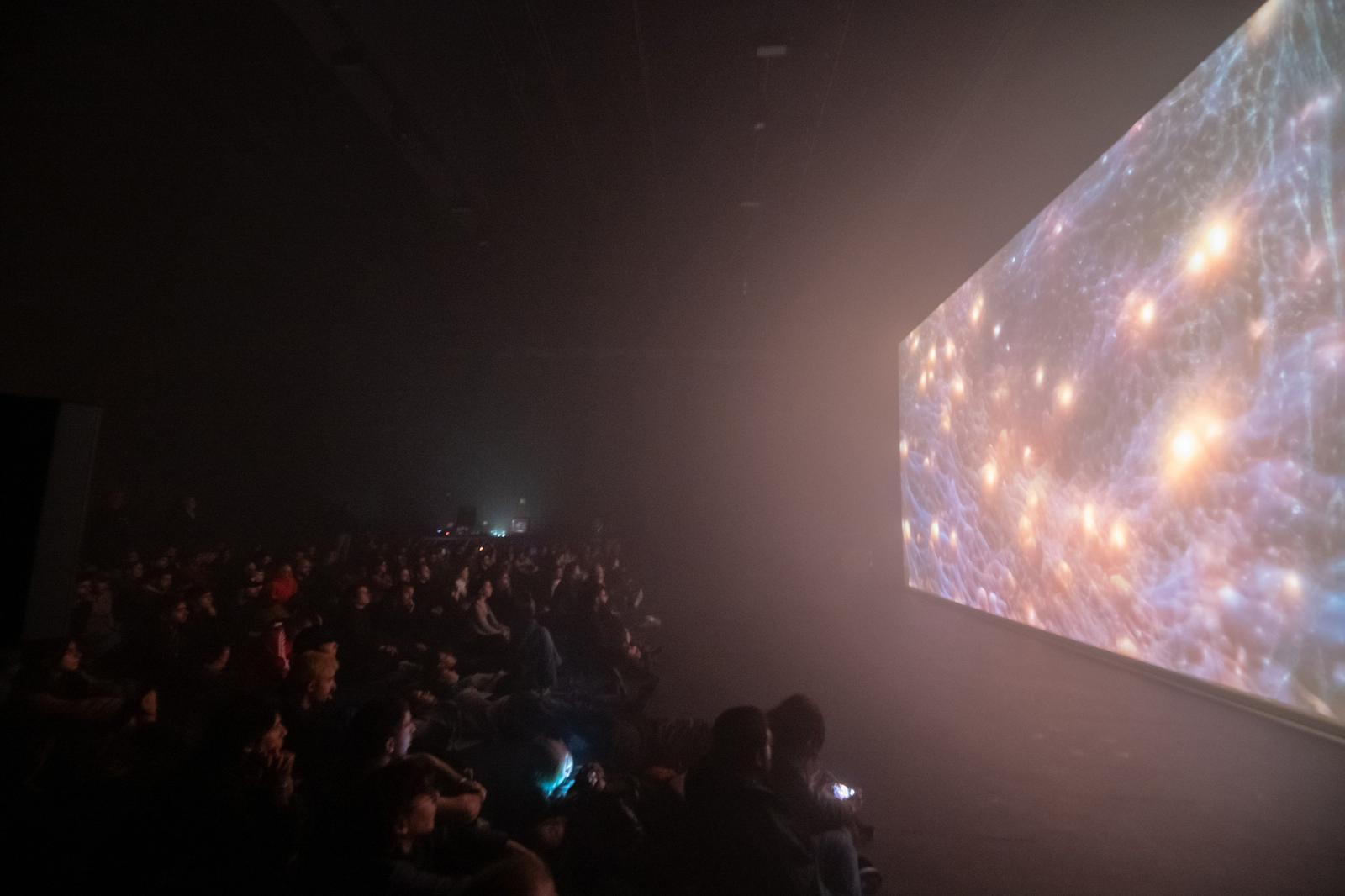
Music performances curated by Revolve.
- Rita Silva @ Psychoactive Surface - May 16
Rita Silva (PT): young composer and instrumentalist, she improvises with modular synthesizers and generative programming techniques.
- Ricardo Martins @ Psychoactive Surface - May 17
Ricardo Martins (PT): drummer of singular energy, with a post-punk signature, he has worked in various projects such as Papaya, Jibóia, Filho da Mãe & Ricardo Martins and Chão Maior.
- Jonathan Uliel Saldanha, Atavic Forest 2.0 (image on the left, by João Octávio Peixoto) @ Psychoactive Surface - May 18
Jonathan Uliel Saldanha (PT): sound and scenic artist, who works with pre-language, dub, crystallisation, percussion, allopoiesis, animism and echo
Tickets available online (link here) and onsite, during the event. The cost will revert to the artists.
With the support:

